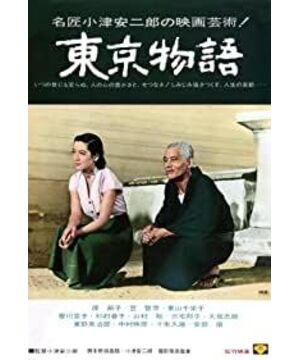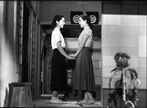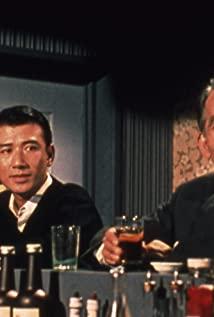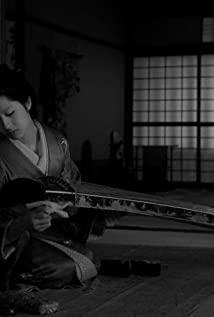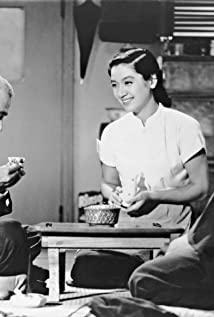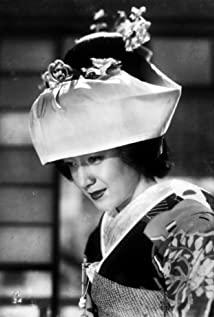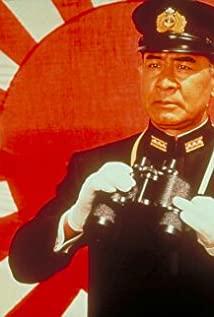Delicate and real.
The switching of each shot in the movie has its own unique function, and the explanation of the plot is simple, clean, and clear. There are too many examples. For example, at the beginning, the neighbors praised the eldest son for his promising medicine. The faces of the old couple were filled with proud smiles and their hearts were full of expectations. They told each other if they forgot to bring anything. The care and thoughtfulness of the old man showed that they had spent a lot of time on this trip and had been looking forward to seeing their children for too long. Just arrived in Tokyo, two sets of shots. On the broken roads and railways in the countryside, a small door has "Pediatric Clinic" written on its face. It turns out that the eldest son is just like that, and the eldest grandson is arguing with his mother to make room for his grandparents. This is how the disharmony came into being. The old man's expectation and the children's disgust, just 10 minutes of foreplay, clearly showed the contradictions that the work wanted to show in front of the audience. The good drama has begun. It seems to be dull, but in fact, the climax is high.
It is such a lens editing technique that makes the two-hour black-and-white film delicate and not procrastinated, and tells a simple story without loopholes in every detail, which reflects the director's deep thinking on human nature. The selfishness of the eldest daughter in the film is criticized by the audience, and she is also the best acting in my opinion in this film. Her parents were going to visit Tokyo, and she pushed the trip with her parents to her third daughter-in-law because she had to work. She opened a beauty salon with a cautious attitude towards her customers, while she was unrestrained towards her parents, which is a stark contrast. The eldest son-in-law bought some cakes for his parents, but she thought it was too expensive, and accused her husband of saying it was redundant. She and the eldest sent their parents to Hot Sea to soak in the hot springs, thinking that they had spent the money to show their filial piety. When her mother was ill, she brought her mourning clothes to visit, for fear of buying them there. After her mother died, she and the eldest hurried home to work at the earliest, expressing a remark similar to "it would be better if my father died first", and also asked for some of the most valuable pieces of clothing from my mother... Everything seemed to be Acting without any emotion. (This sentence is to praise the actor) This kind of person is simply a beast! But isn't this kind of children everywhere in life? In fact, she is not so sinful, and the pressure of life is too great for her to take care of so much. Our parents seem to be always giving themselves to us, and when they ask us for even a little bit, we reject it. Thinking about it carefully, I am also such a person. When I was in school, I never celebrated Mother's Day or Father's Day for my parents, because I didn't think it was necessary to engage in this kind of form, and I devoted myself to my study. In my interactions with my classmates, I completely ignore the people around me who love me the most. After high school, when life or grades were unsatisfactory, my parents were my garbage dump. What I have done for my parents seems to be superfluous, like the eldest daughter who is reluctant to buy a few cakes for her parents. When our parents passed away, the property left to us was robbed by our children like the foreign powers divided China. I often watch TV quarrels, most of which are about parental support issues and real estate issues. Children are like urban management threatening hawkers, threatening their parents to keep the property for themselves. The original brothers and sisters turned against each other on the stage, yelling at each other, full of heads. The white-haired parents sat on the side and wept silently. The children gained a few extras, but lost their conscience and soul.
The parents in the movie are so kind, they come to their children's house and don't want to cause any trouble. Many of the dialogues in the film are quite meaningful. "I've been to Tokyo, I've been to Atami, let's go home." This is such a common line, but the more you think about it, the more shocking you are. They spend most of their time in Tokyo at their eldest son's suburban home. The children are busy drying their parents at home. The parents feel that they are causing trouble to their children and do not express their dissatisfaction at all. Their children spend money to send them to Atami, but they actually spend money to send them away. The audience understands in their hearts, but their parents still regard this trip as their children's filial piety. They were obviously not having a good time. Atami is a place for young people to play, and the old couple couldn't sleep because of the noise at night. The next morning, listless, the old father said this while looking into the distance by the sea. They still try to excuse their children, still lie for them, still pretend to be calm about their children's unfilial piety, still smile and try to pretend to be satisfied, aren't such parents great?
At the end of the film, I know that the eldest daughter and sons return home early to work with their mother's belongings. Only then did the father hold the third daughter-in-law's hand and simply express his dissatisfaction, "I didn't expect that my sons and daughters would not be close to anyone from outside the family." He gave the third daughter-in-law the watch that his deceased wife loved most. In my opinion, this piece is price; in my opinion, what my father said is so important. The father has long been disappointed with his children, how can such a wise elder not see through the minds of your younger generation? On the last night in Tokyo, my father was drinking and chatting with friends. It turned out that it was not bad to play your parents as football. Hearing various stories of friends being abused by their children, the old man was sad and regretful. The father was drunk on the street and was sent to the eldest daughter's house by the police. The daughter chanted a curse on her father like a parent, "Why are you drinking so much alcohol? Why are you so ignorant? Why is it so troublesome?". The father, like a child, slept on a chair in the beauty salon, completely ignoring his daughter's nagging.
I believe that the eldest daughter cried and choked for her mother from the bottom of her heart. She and the eldest son and the third son are not evil people, but they are so indifferent to their closest parents. Be kind to the relatives around you, life is short, and you may not meet in the next life.
This film has the connotation and depth of splashing ink landscape painting, and also has the delicate warmth of Monet's realism. The pinnacle of realist art, extremely restores the truth, but also gives people a touch and reflection that is far from the truth.
View more about Tokyo Story reviews


